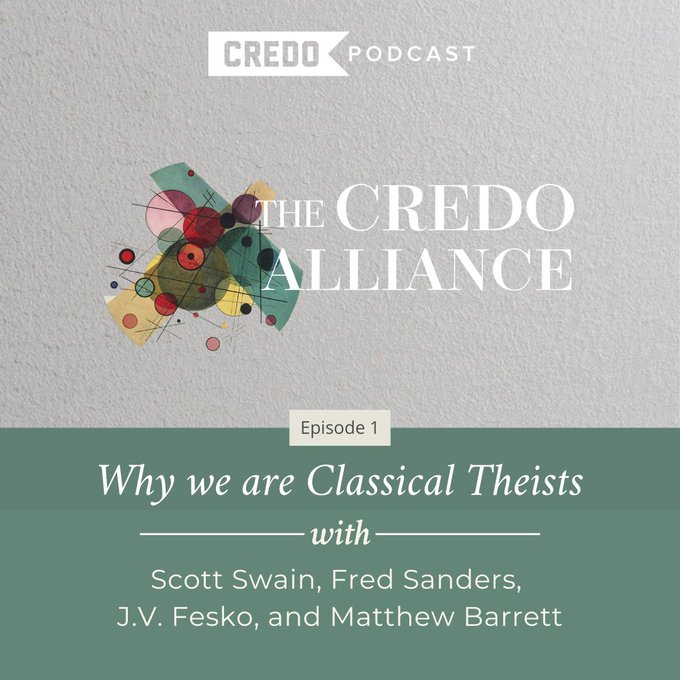Show Notes
 In this special episode, Credo launches a new series called The Credo Alliance, which brings together today’s best theologians to unite around classical Christianity, collaborating for the sake of renewal in the church today.
In this special episode, Credo launches a new series called The Credo Alliance, which brings together today’s best theologians to unite around classical Christianity, collaborating for the sake of renewal in the church today.
In this first episode, Credo Fellows Fred Sanders, J.V. Fesko, Scott Swain and Matthew Barrett share their stories, explaining how they were weaned off of modern theology and drawn towards the beauty of classical theology. They also give advice, suggesting entry points to the Great Tradition that can help the next generation. Yet they not only talk theology but philosophy, reflecting on the ways the church fathers used and bent ancient philosophy to support the biblical idea of divine transcendence.
Fred Sanders serves as professor in the Torrey Honors College, an undergraduate program in the great books, at Biola University. He has written several books and articles including The Deep Things of God: How the Trinity Changes Everything (Crossway, 2010), The Triune God (Zondervan, 2016), and Fountain of Salvation: Trinity and Soteriology (Eerdmans, 2021). Sanders serves as a Fellow of Credo Magazine.
J.V. Fesko serves as Harriet Barbour Professor of Systematic and Historical Theology at Reformed Theological Seminary. He is the author and editor of several books, including The Trinity and the Covenant of Redemption (Mentor, 2016). Fesko serves as a Fellow of Credo Magazine.
Scott Swain serves as president and James Woodrow Hassell Professor of Systematic Theology at Reformed Theological Seminary. He is the author of several books, including most recently The Trinity and the Bible: On Theological Interpretation (Lexham Press, 2021) and The Trinity: An Introduction (Crossway, 2020). Swain serves as a Fellow of Credo Magazine.
Matthew Barrett is the editor-in-chief of Credo Magazine and host of the Credo podcast. He is associate professor of Christian theology at Midwestern Baptist Theological Seminary and Director of the Center for Classical Theology. He is the author of the award-winning Simply Trinity and his new book is called, The Reformation as Renewal. He is currently writing a Systematic Theology (Baker Academic).
